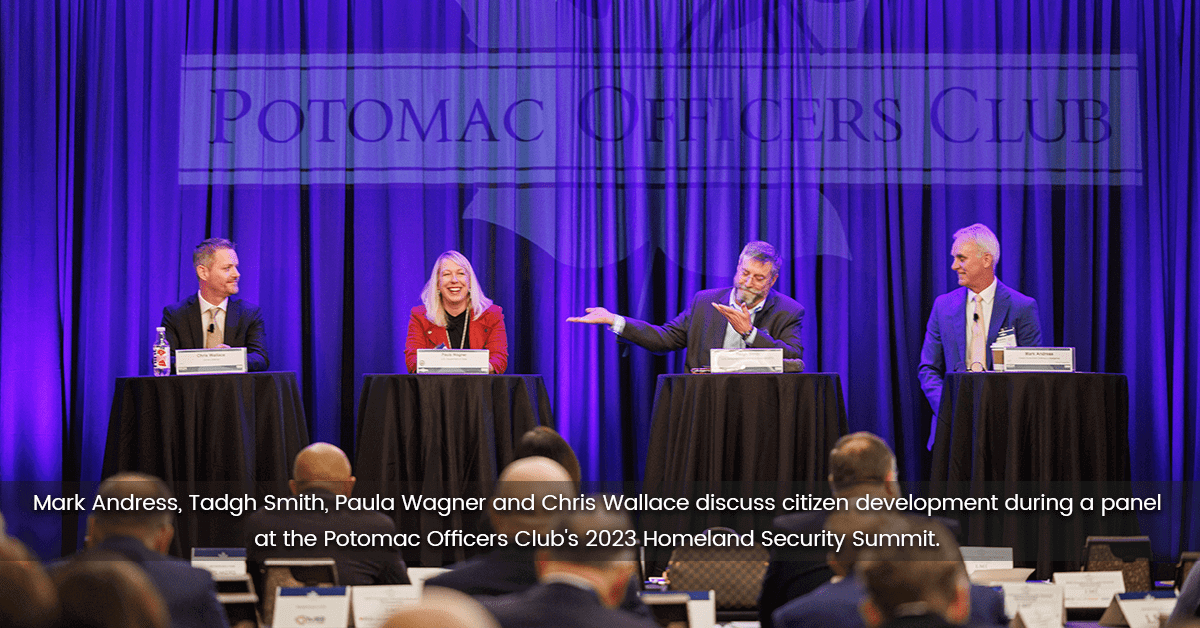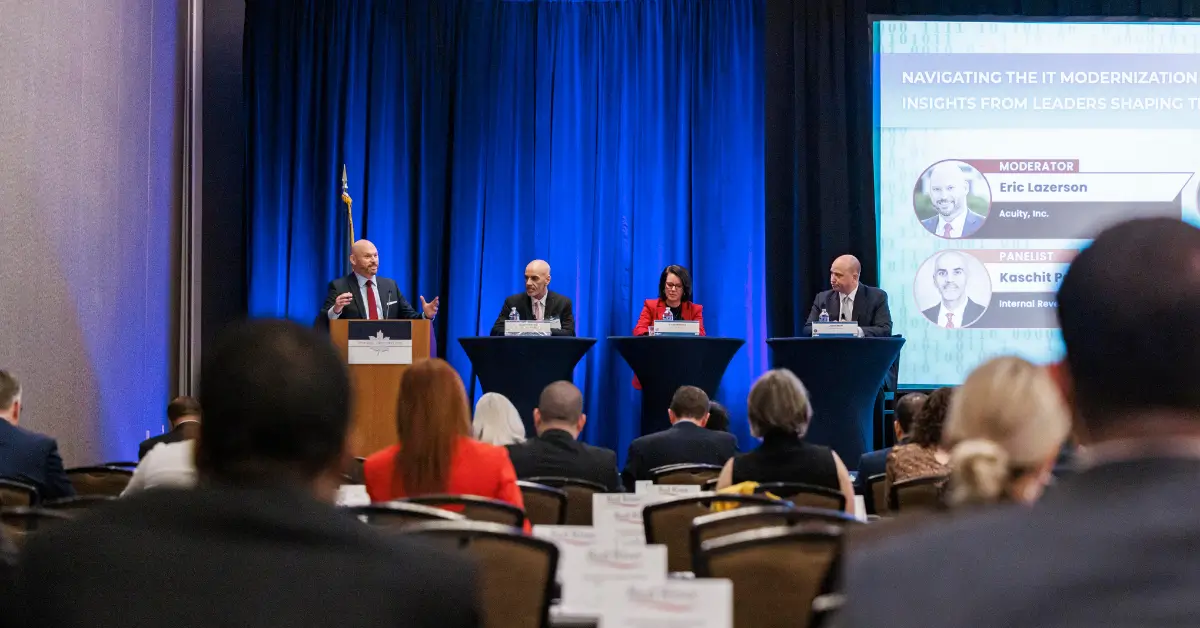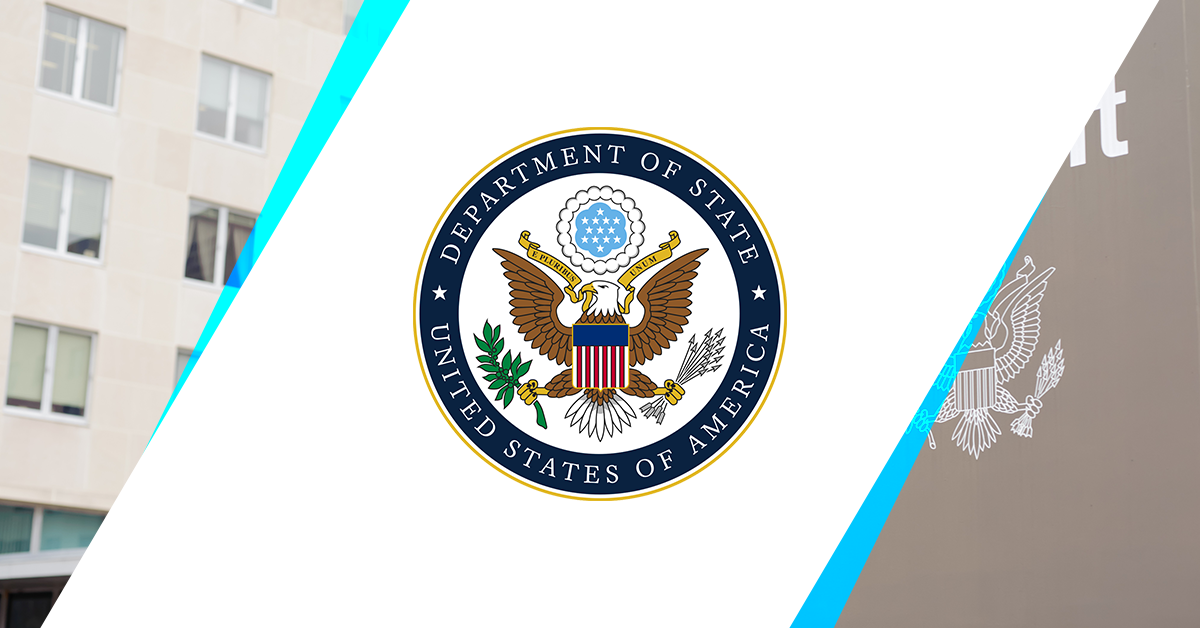In its simplest form, citizen development is “enabling mission owners to code,” Mark Andress, global vice president of Oracle Government Defense & Intelligence, said during a panel discussion at the Potomac Officers Club’s 2023 Homeland Security Summit last week.
In an era increasingly defined by data, he said, the ability to analyze data is necessary for operators to get the answers needed for mission success.
Today, government organizations are embracing the idea of citizen development, and agencies across departments are assessing the ways in which they can tailor the concept to meet their specific needs. Paula Wagner, director of the U.S. Department of State’s Cloud Program Management Office, said that for her organization, citizen development is important to ensure that systems function smoothly across its many global facilities, where access to technical developers may be limited.

Encouraging citizen development within the department, she said, starts with ensuring customer awareness of available technologies.
“We don’t do a good enough job marketing what we have to offer. We have three clouds, we have access to so much from each of those and we don’t really use what we should be using or share that with customers,” she said.
According to Chris Wallace, division chief of systems delivery at U.S. Citizenship and Immigration Services, the agency is prioritizing guardrails as it moves forward with training mission owners to use new technologies.
“[Citizen development] is going to happen whether you pay attention to it or not, but if you want to keep control of it, you have to invest in the resources and the time to make sure that governance is right,” said Wallace.
Guardrails, he explained, provide the agency with the confidence needed to allow its personnel to build their own tools without compromising security.

Andress sees artificial intelligence playing a major role in the progression of citizen development. The idea of embedding AI into enterprise applications “is going to be huge,” he said.
“It’ll probably sprint out ahead of other applications and other uses because the datasets are already very well defined. You have high provenance and you understand the metadata around it, so the AI that delivers from it is by its nature more accurate,” he added.
Tadgh Smith, deputy assistant director for the Law Enforcement Systems and Analysis at U.S. Immigration and Customs Enforcement, said that much of the success of citizen development comes from a workforce that is “becoming more and more sophisticated and more adept at using the tools available to them.” He cited website development, social media and word processing as ways young people entering the workforce have already engaged in building digital tools.
Wallace emphasized the importance of collaboration across both industry and government organizations in citizen development.
“If you’re also solving this, we should be working together, because some agencies are way ahead and some are behind. But if we’re working together, we can be a force multiplier,” he said.

At the Potomac Officers Club’s next event, the 2023 Healthcare Summit on Dec. 6, key healthcare experts from both the public and private sectors will dive into the current challenges and priorities shaping government healthcare operations. To learn more and register to attend the event, click here.







